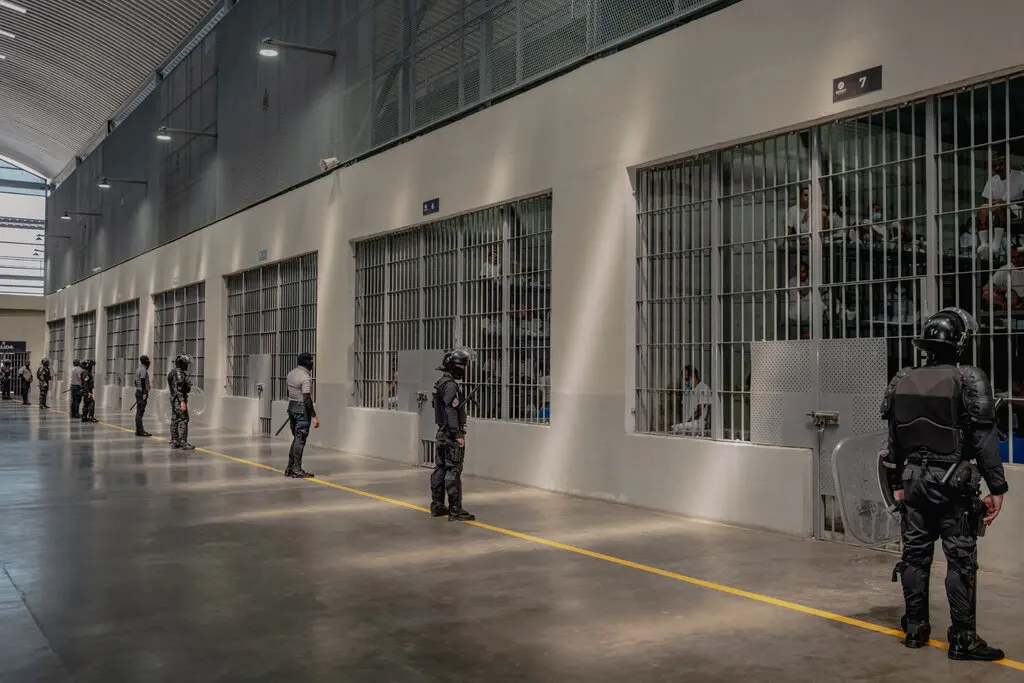A Venezuelan migrant, Neiyerver Andrián Leon Rengel, has filed a formal claim with the Department of Homeland Security (DHS), alleging he was illegally deported from the United States under the Trump-era Alien Enemies Act despite having legal temporary status. His case, which now involves accusations of human rights abuses and violations of due process, is raising new concerns about US immigration enforcement practices.
Rengel was deported in March to El Salvador, where he was detained at the notorious CECOT prison, a high-security facility known for severe conditions. He was one of 18 migrants labeled as affiliates of the criminal group Tren de Aragua and sent out of the US under national security grounds. However, Rengel insists he had no gang affiliation and that he was wrongly targeted. His deportation took place just two days after a federal judge had issued an order halting such removals to third countries — an order later overturned by the Supreme Court.
Rengel says he experienced “physical, verbal, and emotional abuse” while imprisoned in CECOT and was subjected to inhumane treatment for three months before being repatriated to Venezuela in a mass deportation deal involving 250 migrants. The transfer, facilitated by Salvadoran President Nayib Bukele, has triggered an investigation by Venezuela’s attorney general, who is probing reports of human rights violations within the prison.
In his legal filing, Rengel accuses the White House, DHS, ICE, DOJ, and State Department of negligence and unlawful actions that resulted in his loss of liberty and severe emotional trauma. The claim, submitted to the Office of the General Counsel at DHS, says he was not given due process and continues to suffer psychological distress from the experience.
Rengel’s legal team, led by the League of United Latin American Citizens (LULAC), argues that his rights were ignored from the moment he was arrested by Immigration and Customs Enforcement (ICE) on March 13 in Irving, Texas—his 27th birthday. Despite showing agents documents confirming his legal status and a future immigration hearing in 2028, he says his papers were dismissed, and he was wrongfully accused of being linked to the Tren de Aragua gang.
While DHS spokesperson Tricia McLaughlin described Rengel as an illegal entrant and a threat to public safety due to his alleged gang ties, Rengel insists the accusations are baseless. He claims ICE denied him the right to a phone call and forced him to choose between deportation and a court hearing, without providing a Spanish translation of the legal documents. Although he requested to see a judge, he says that never happened.
On March 15, ICE reportedly told Rengel he was being returned to Venezuela. But after landing, he discovered he was in El Salvador, not his home country, and realized immigration officials had deceived him. His family spent months trying to locate him, receiving little to no assistance from government agencies.
“His story is a wake-up call for every American who believes in the promise of the Constitution and the rule of law,” said Juan Proaño, CEO of LULAC. “We must not allow political agendas to trample due process and the fundamental rights guaranteed to all people in this country.”
This case highlights ongoing concerns about how immigrants are treated during removal proceedings and the potential for abuse when legal safeguards are ignored. Rengel’s claim could pave the way for further legal challenges and calls for reform in US deportation practices.

